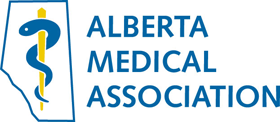Own Occupation rider
The Own Occupation rider means that if you become totally disabled, you will be considered disabled in your regular occupation (i.e., your occupation as of the date of your disability) even if you return to work performing different duties or find work in another occupation.
How do we define disability?
Total disability (as defined under the rider) means that you:
- Are unable, due to sickness or injury, to perform the essential duties of your regular occupation.
- Are under the regular care of a physician.
- May be gainfully employed in an occupation other than your regular occupation.
The definition of total disability without the Own Occupation Rider is the same except that it does not allow you to collect full benefits while engaged in another gainful occupation. In this case, residual disability benefits would be payable based on your percentage loss of income as opposed to full benefits being paid.
Do I need it?
If you are not able to perform the essential duties of your regular occupation due to total disability, how likely are you to engage in another occupation? If your answer is “not likely,” then you probably do not need the Own Occupation rider.
The following table illustrates how a claim would be paid with and without the Own Occupation rider:
Table: Base plan with and without the Own Occupation rider
How much will it cost?
The Own Occupation rider costs 15% of the base plan premium. Please contact an insurance advisor for more information.
